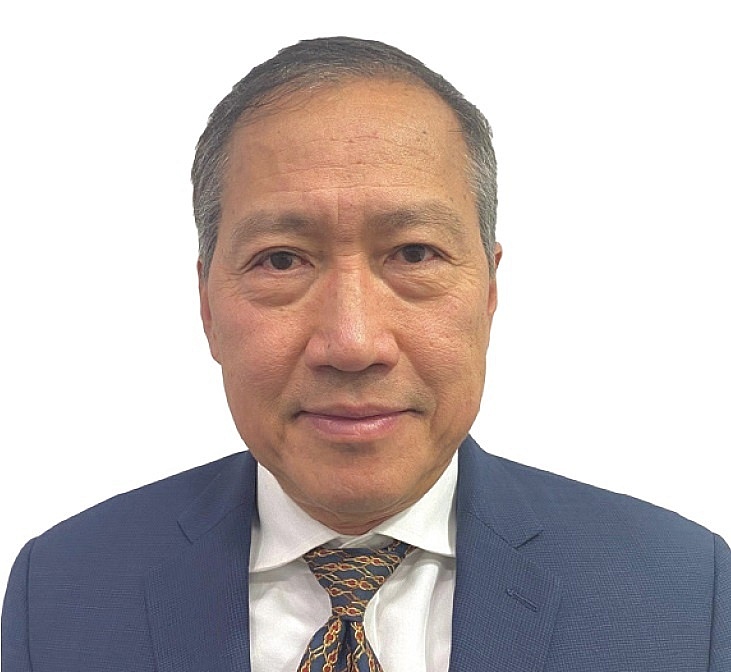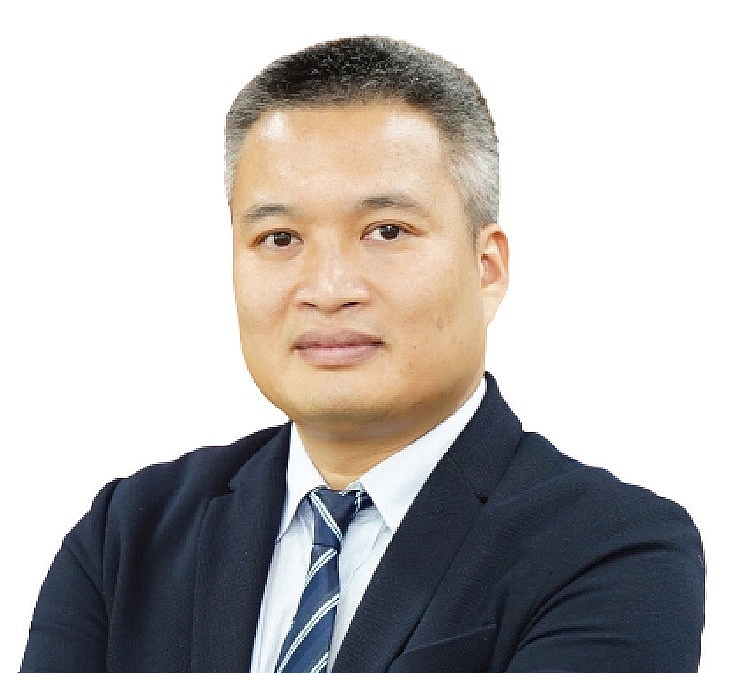Chip cooperation to underpin US capital
 |
| Chip cooperation to underpin US capital, illustration photo/ Source: freepik.com |
Last week saw Vietnam and the US forged a new semiconductor partnership to support resilient semiconductor supply chains for US industry, consumers, and workers.
The partnership is reflected via the signing of a memorandum of cooperation on semiconductor supply chains, workforce and ecosystem development, which will formalise this bilateral partnership to expand the capacity of the semiconductor ecosystem in Vietnam, in support of US industry. Under the International Technology Security and Innovation Fund, created by the CHIPS Act of 2022, the US will partner with Vietnam to further develop Vietnam’s current semiconductor ecosystem, regulatory framework, and workforce and infrastructure needs.
The comprehensive workforce development initiatives in Vietnam will jointly develop hands-on teaching labs and training courses for semiconductor assembly, testing, and packaging. The US government will provide initial seed funding of $2 million to launch the initiatives, in conjunction with future support from the Vietnamese government and the private sector. The effort will support the expansion of good jobs for the American middle class for work further up the semiconductor industry value chain.
According to a statement from the White House, the US recognises Vietnam’s potential to play a critical role in building resilient semiconductor supply chains, particularly to expand capacity in reliable partners where it cannot be re-shored to the US and further promote manufacturing and industry development at home under the US CHIPS Act.
Vietnam’s Ministry of Planning and Investment (MPI) has been assigned to formulate a scheme on semiconductor manufacturing, in the context that the nation has put its modern National Innovation Centre into operation, including semiconductor research and development.
The US has set priorities on developing resilient and secure supply chains with Vietnam because the Southeast Asian nation has already demonstrated the capacity to produce semiconductors to world standards with American companies like Intel and Amkor.
“Semiconductors are of vital importance to US manufacturing. The US and Vietnam have become trusted partners based on years of dealing with each other,” said Carl Thayer, emeritus professor at the University of New South Wales. “The US has chosen to prioritise AI and quantum computing because these are the frontier technologies for the future. Vietnam has also set priority on Industry 4.0 technology, so the views of Vietnam and the US are congruent. The US would also like to develop green energy technology with Vietnam.”
According to the joint leaders’ statement on elevating US-Vietnam relations to a comprehensive strategic partnership released last week, Vietnam and the US decided to strengthen science, technology, and digital innovation cooperation, regarding this as a new breakthrough of the Comprehensive Strategic Partnership.
“The US affirmed its commitment to increasing support for Vietnam in the training and development of a high-tech workforce. Acknowledging Vietnam’s tremendous potential as a major player in the semiconductor industry, the two leaders pledged to support the rapid development of Vietnam’s semiconductor ecosystem and to work together energetically to improve Vietnam’s position in the global semiconductor supply chain,” the statement read.
Over the past decade, Vietnam has emerged as a critical node in the global semiconductor supply chain, and investments are only accelerating. Less than an hour’s drive from here in the northern province of Bac Ninh, Amkor – an Arizona-based company – will soon fully open a $1.6 billion factory for semiconductor assembly and testing.
Down in the southern province of Dong Nai, another American company, Onsemi, produces chips that are used in cars around the world. Nearby, in Saigon High-Tech Park, sits the largest Intel assembly and testing facility in the world. Many of the companies investing in Vietnam are also building up their capacity and employment in the US as well.
South Korean component manufacturer LG Innotek recently also confirmed a $1 billion investment to build a manufacturing facility for advanced smartphone camera modules and other optical products in northern Haiphong city. Meanwhile, the new $1.6 billion semiconductor plant of South Korea’s HANMI Semiconductor in Bac Ninh province is scheduled for trial production in late October.
According to German data provider Statista, revenue from Vietnam’s semiconductor market is forecast to hit $20.15 billion this year and post a compound annual growth rate of 11.62 per cent in the 2023-2027 period, for a market volume of $31.28 billion by 2027. The largest market within the semiconductor industry is integrated circuits, with a projected market value of $16.44 billion this year.
Do Van Su, deputy director of the MPI’s Foreign Investment Agency, revealed that at a recent meeting upon their survey in Vietnam, the US Semiconductor Industry Association recognises Vietnam as the future’s semiconductor powerhouse.
“With its unparalleled strength as a manufacturing hub, producing sophisticated smartphones and electronic components, Vietnam stands poised to lead. US investors see more than just potential here. They see a thriving future,” Su said.
Meanwhile, a US Department of Treasury analysis indicated that real manufacturing construction in the US has doubled since the end of 2021. But the US does not seek to build everything in its territory.
“Rather, we believe that long-term economic resilience requires diversified global supply chains. This means deepening our economic integration with the large number of countries we can count on – including Vietnam,” said US Secretary of the Treasury Janet Yellen when she visited Vietnam in July.
Yellen noted that while critical to the production of everyday consumer products like cars and refrigerators, and the development of cutting-edge technologies, virtually all manufacturing of the most sophisticated chips is concentrated in East Asia.
Recent experience demonstrates the economic pain that disruption of this key supply chain can cause. One study estimates that the chip shortage during the pandemic likely contributed to worldwide revenue losses of over $500 billion from 2020 to 2022. The impact was particularly acute for the automotive industry. In 2021 alone, this single industry was estimated to have lost $210 billion in global revenue.
The US is taking a comprehensive approach to diversify and strengthen its semiconductor ecosystem. The US is first investing in its own domestic capacities through the CHIPS and Science Act. This law provides incentives for manufacturers to build fabrication plants in the US.
“But no country can or should do this alone. We are working with our partner countries to ramp up their investments as well,” explained Yellen. “For example, we have dedicated a new $500 million fund for international semiconductor and telecom projects under the CHIPS Act. This fund can help countries in the Indo-Pacific develop their own diverse and resilient semiconductor supply chains,” Yellen said.
| Michael Nguyen - Country managing director Boeing Vietnam
We believe an enhanced bilateral economic relationship between the United States and Vietnam will reinforce cooperation in aerospace and support a thriving aviation industry. Vietnam is an important partner for Boeing due to its growing economy, expanding aviation industry, emerging role in global supply chains, and commitment to achieving net-zero carbon emissions, and we are excited to deepen our presence. Over the years, Boeing has proudly partnered with Vietnam to develop and strengthen its aerospace capabilities. Boeing will continue to support Vietnam’s goal to become an aviation hub, develop Vietnamese suppliers, train talent, and work with the domestic industry to decarbonise aviation. Leonardo Garcia - General manager Coca-Cola Vietnam and Cambodia
Vietnam presents significant growth opportunities for any business, with a population of 100 million people and a rapidly growing consumer market with its middle class expanding. Having been operating in Vietnam for nearly 30 years, Coca-Cola is eager to contribute to Vietnam’s socioeconomic development through expanding investment along with a commitment to fulfilling social responsibilities in the country. As of now, the total capital of Coca-Cola in Vietnam has exceeded $1 billion, including the new investment in the greenfield plant broke ground in the Mekong Delta province of Long An in October 2022. It is a $136 million project with a capacity of one billion litres of beverages per year from the plant to go to the entire production. We have also innovated packaging design and partnered with various stakeholders, such as Duy Tan, Vikohasan, GreenHub, and related organisations to promote a circular economy model and raise awareness of the benefits of proper waste management in Vietnam. This follows the vision of a world without waste, which aims to help collect and recycle the equivalent of every bottle or can we sell globally by 2030. Le Nhan Tam - Chief technology officer Microsoft Vietnam
The cloud is considered an important infrastructure for all products and services in our ecosystem. We are empowering users with more computing capabilities and abilities to use the latest technologies. In the past, AI seemed far away, but now it is becoming much more popular. With Azure Cloud, Microsoft is today the second-largest cloud service provider, with a market share of around 23 per cent. It offers comprehensive and end-to-end cloud services, from computing, storage, network, and databases to big data analytics, security, and AI services so that enterprises can build and deploy their own solutions flexibly, easily, and cost-effectively while reducing product development time. Simultaneously, in our ecosystem with the Windows operating system, modern workplace solutions like Office, Exchange Email, and others, Microsoft embeds AI technology into those products in the easiest way possible for end-users from enterprises to consumers. Microsoft now proactively creates an open ecosystem for many different partners to participate in joint market development. Our strategy is to focus on open sources, open platforms, and frameworks contributing to the development of open-source communities. |
| Vietnam to train up to 50,000 semiconductor engineers At the monthly government meeting on August 5, Prime Minister Pham Minh Chinh tasked the Ministry of Planning and Investment (MPI), the Ministry of Information and Communications, the Ministry of Education and Training, and the Ministry of Science and Technology to develop a plan to train between 30,000 and 50,000 engineers and 100 experts in digital transformation and manufacturing semiconductors. |
| Semiconductor groups go all-out with local investment Vietnam’s semiconductor potential is being bolstered by the development of manufacturing complexes and related capabilities. |
 | FPT Corporation focuses on AI and chip expansion FPT Corporation has reported orders nearing 70 million chips by 2025 and is setting its sights firmly on the expansion of AI, according to Reuters. |
What the stars mean:
★ Poor ★ ★ Promising ★★★ Good ★★★★ Very good ★★★★★ Exceptional
Related Contents
Latest News
More News
- A golden time to shine within ASEAN (February 19, 2026 | 20:22)
- Vietnam’s pivotal year for advancing sustainability (February 19, 2026 | 08:44)
- Strengthening the core role of industry and trade (February 19, 2026 | 08:35)
- Future orientations for healthcare improvements (February 19, 2026 | 08:29)
- Infrastructure orientations suitable for a new chapter (February 19, 2026 | 08:15)
- Innovation breakthroughs that can elevate the nation (February 19, 2026 | 08:08)
- ABB Robotics hosts SOMA Value Provider Conference in Vietnam (February 19, 2026 | 08:00)
- Entire financial sector steps firmly into a new spring (February 17, 2026 | 13:40)
- Digital security fundamental for better and faster decision-making (February 13, 2026 | 10:50)
- Aircraft makers urge out-the-box thinking (February 13, 2026 | 10:39)




 Tag:
Tag:













 Mobile Version
Mobile Version